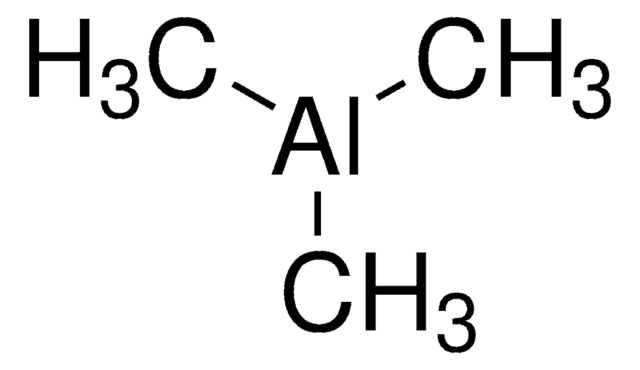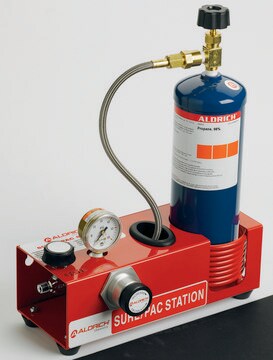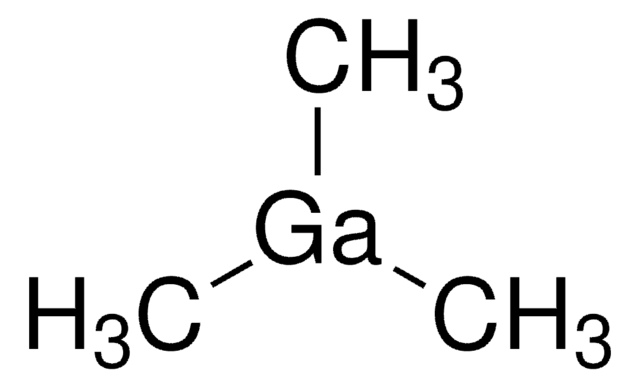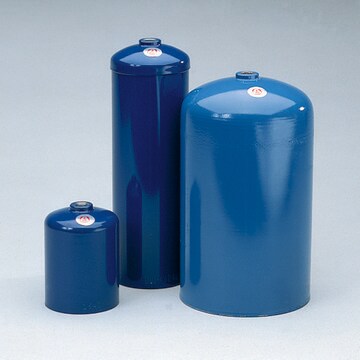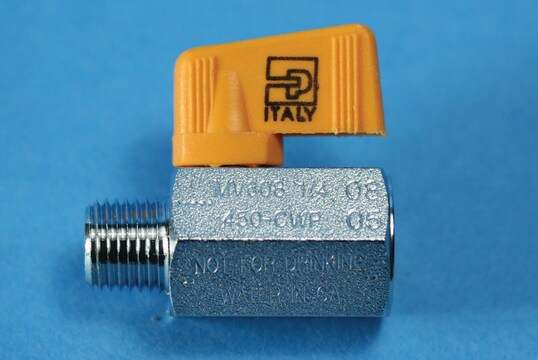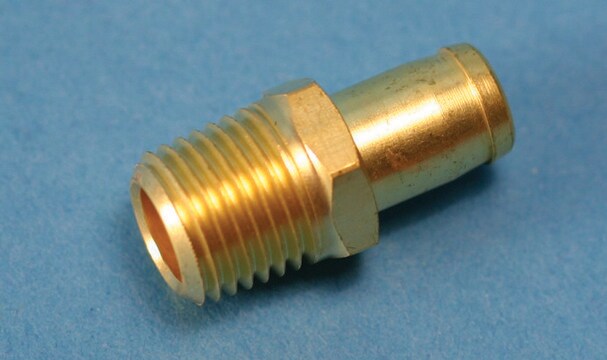257222
Trimethylaluminum
97%
Synonym(s):
Aluminum trimethanide, TMA
About This Item
Recommended Products
vapor pressure
69.3 mmHg ( 60 °C)
Quality Level
description
heat of vaporization: ~41.9 kJ/mol (dimer)
Assay
97%
form
liquid
reaction suitability
core: aluminum
bp
125-126 °C (lit.)
127 °C/760 mmHg
20 °C/8 mmHg
56 °C/50 mmHg
mp
15 °C (lit.)
density
0.752 g/mL at 25 °C (lit.)
SMILES string
C[Al](C)C
InChI
1S/3CH3.Al/h3*1H3;
InChI key
JLTRXTDYQLMHGR-UHFFFAOYSA-N
Looking for similar products? Visit Product Comparison Guide
General description
Application
- As a growth initiator to synthesize self-assembled aluminum nanoparticles via atomic layer deposition.
- As a precursor to synthesize aluminum-doped ZnO thin films(AZO) for electron transport layer of perovskite solar cells. TMA enhances electrical conductivity and thermal stability of perovskite layers.
- To fabricate Al2O3-coated Si-alloy anodes for Li-ion batteries. This coating helps to suppress the volume expansion of Si and improves cell stability.
- To fabricate Al2O3-coated graphite electrode with superior anti-self-discharging behavior (260 h) with long stability (900 cycles), for Al-ion battery.
Packaging
Compatible with the following:
- Aldrich® Sure/Pac™ station for liquefied gases Z566446
- PTFE Sealing tape Z104388 or Z221880
- Straight septum-inlet adapter Z118141 with septa Z565687 or Z565695
Other Notes
Legal Information
also commonly purchased with this product
recommended
septum inlet adapter
Signal Word
Danger
Hazard Statements
Precautionary Statements
Hazard Classifications
Eye Dam. 1 - Pyr. Liq. 1 - Skin Corr. 1B - Water-react 1
Supplementary Hazards
Storage Class Code
4.2 - Pyrophoric and self-heating hazardous materials
WGK
nwg
Flash Point(F)
No data available
Flash Point(C)
No data available
Personal Protective Equipment
Choose from one of the most recent versions:
Already Own This Product?
Find documentation for the products that you have recently purchased in the Document Library.
Customers Also Viewed
Articles
As the electronic industry continues to move towards smaller and smaller devices, researchers must continually strive for technologies to deposit electronic materials with precision at ever-smaller scales. This trend has lead to a variety of techniques used in the microelectronics industry to layer materials with precision thicknesses, sometimes down to even the atomic level.
Since the demonstration of the first practical solar cell 60 years ago, research on novel materials, improved solar cell design and structure, and innovative manufacturing processes have all contributed to a continuous increase in the efficiency of photovoltaic (PV) devices.
Nanomaterials are considered a route to the innovations required for large-scale implementation of renewable energy technologies in society to make our life sustainable.
The properties of many devices are limited by the intrinsic properties of the materials that compose them.
Our team of scientists has experience in all areas of research including Life Science, Material Science, Chemical Synthesis, Chromatography, Analytical and many others.
Contact Technical Service